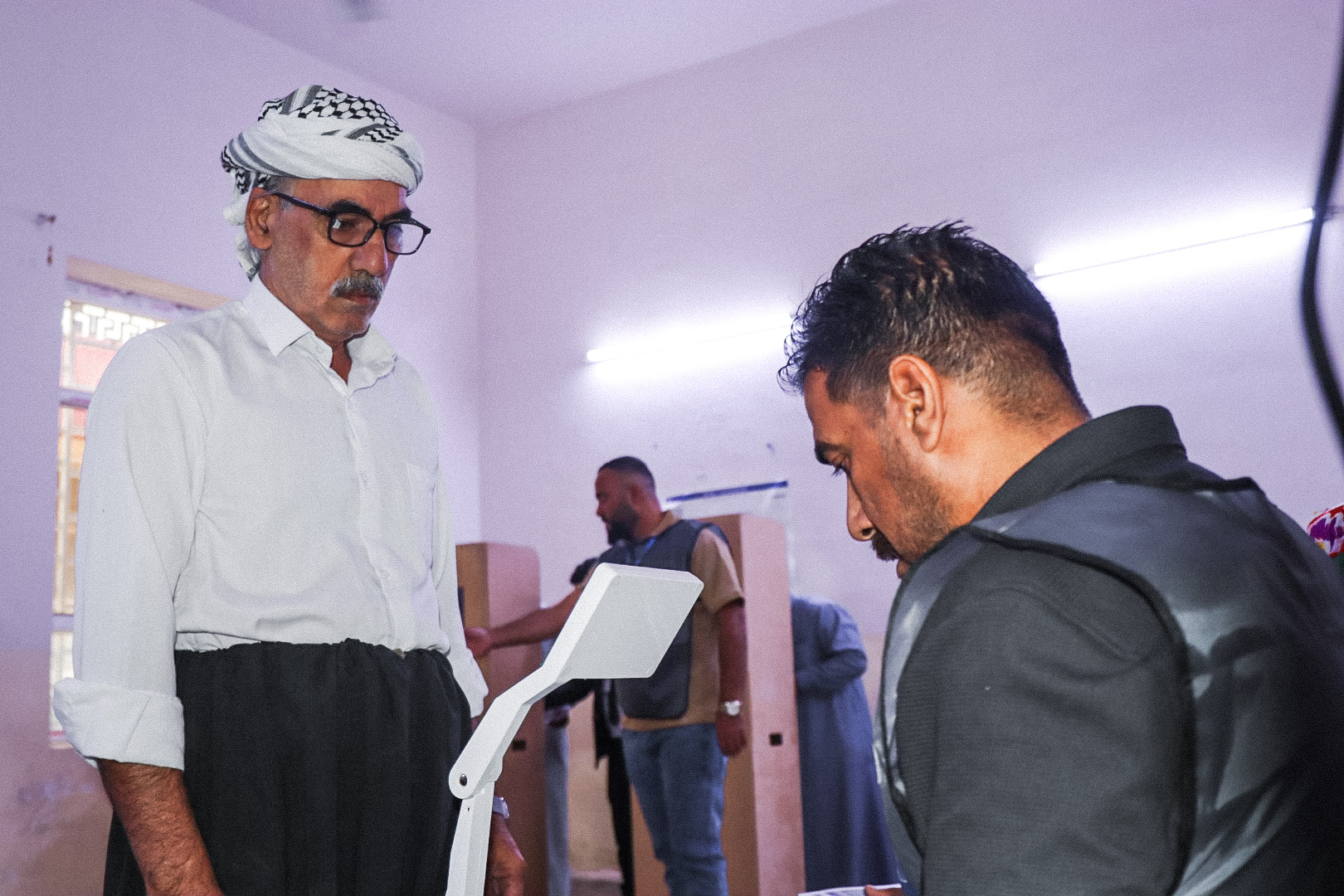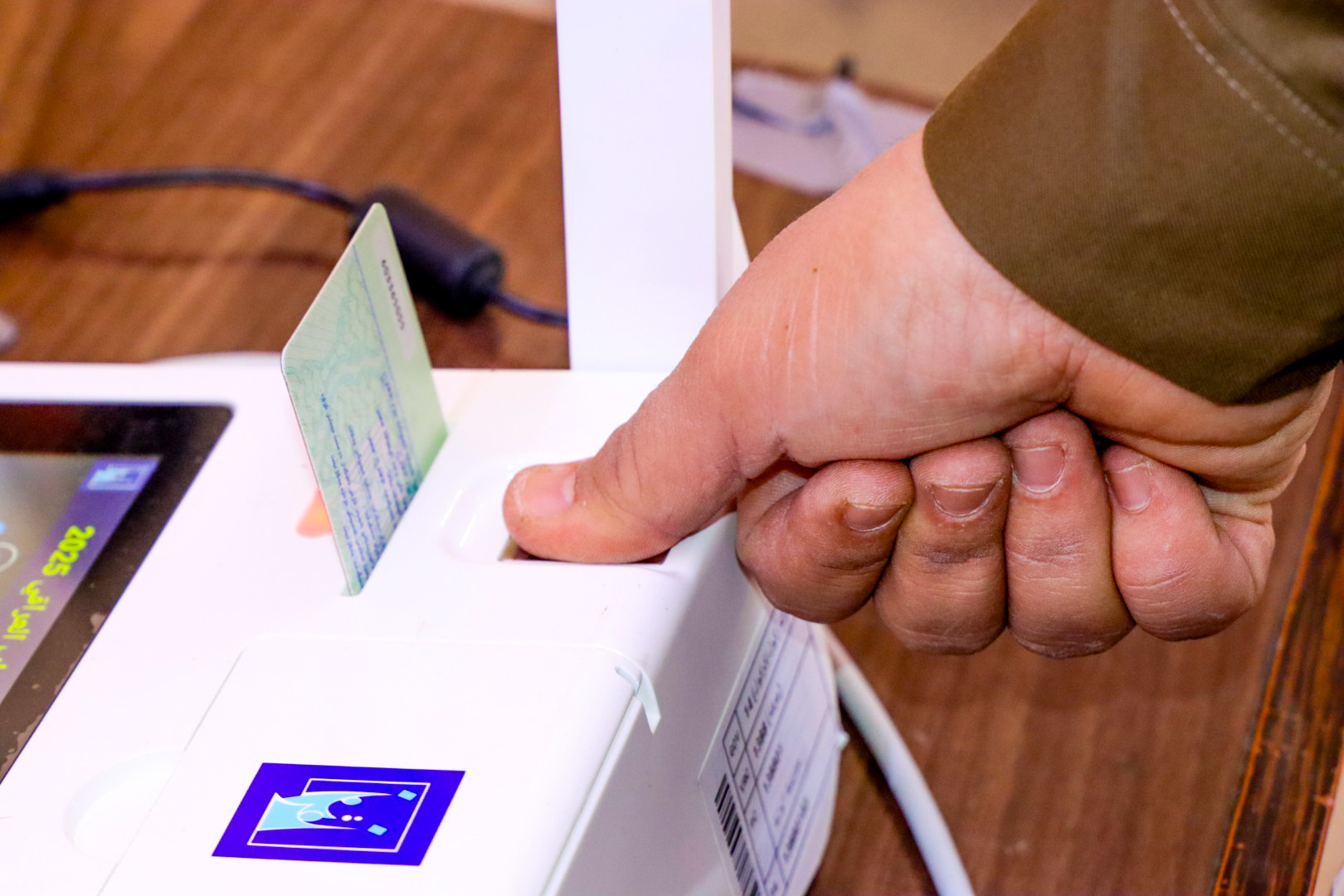Ballot boxes for Iraq’s parliamentary elections have been closed. According to KirkukNow correspondents, the elections recorded the lowest number of complaints and objections from political party representatives. The speed and efficiency of the voting devices were also seen as positive aspects of the process.
The sixth parliamentary elections will select 329 representatives to Iraq’s Council of Representatives (Parliament). These elected members hold the authority to choose the council’s speaker, elect the president of the republic, and confirm the appointment of the prime minister.
The voting process began at 7:00 a.m. on Tuesday November 11 and continued until 6:00 p.m., welcoming voters over the course of 11 hours. More than 20 million people across 18 electoral districts were eligible to vote.
According to unofficial statistics from the Independent High Electoral Commission (IHEC) in Iraq’s provinces, voter turnout in the disputed territories—including Kirkuk, Nineveh, Diyala, and Salahaddin—exceeded 50%, which is higher compared to the 2021 elections.
In Kirkuk Province, 958,141 citizens held biometric voter cards and were eligible to vote in the parliamentary elections. Over 500,000 voters participated, according to unofficial figures.
Overall, the voting process in Kirkuk took place peacefully, with security forces ensuring the safety of the elections, despite a shooting incident that occurred at dawn on Baghdad Road in central Kirkuk, which resulted in the death of two policemen and the injury of two civilians.
Following the incident, the Iraqi Ministry of Interior announced the arrest of 14 suspects—mostly bodyguards of a candidate from the Iraqi Turkmen Front ITF.
Videos circulating online show crowds of ITF supporters waving flags and chanting near one of the party’s campaign offices. Smaller groups of Kurdistan Democratic Party KDP supporters and vehicles displaying pictures of Bafel Talabani, leader of the Patriotic Union of Kurdistan, were also seen nearby.

After casting his vote, Rebwar Taha, the Governor of Kirkuk, told reporters, “The bodyguards of one political candidate opened random fire around 2 a.m., resulting in the deaths of two patrol policemen.”
The governor added that surveillance footage showed there was no threat to the candidate’s life, and the gunfire was unjustified. A formal investigation has been launched.
“The security situation is stable, all roads are open for voters, and the process went smoothly with good turnout,” Kirkuk Police Spokesperson, Lt. Col. Amer Shawani, told KirkukNow.
Over 7,750 candidates, with women accounting for nearly one-third, are contesting 329 parliamentary seats. By law, a quarter of these seats are reserved for women, while nine are designated for representatives of religious minorities.
In an electoral framework widely seen as favoring larger political parties, only 75 independent candidates have entered the race.
According to Iraq’s electoral commission, voter turnout reached 55 percent among the country’s 21 million registered voters. However, this figure excludes an additional 11 million eligible citizens who could have voted had they registered.
“The process was calm and no violations or obstacles for voters were recorded,” said Abdulbasit Darwish, spokesperson for the Kirkuk Electoral Commission,
KirkukNow reporters confirmed that technical issues were minimal, with only a few cases of fingerprint recognition errors, which were resolved by using iris scans—a factor that made the process smoother than in previous elections.
In Nineveh Province, which had the second-largest voter population following Baghdad—2,102,429 registered biometric voters—more than one million participated, with no major issues reported, even in previously tense security zones. The competition between candidates and parties for 34 parliamentary seats was intense.
In Shingal (Sinjar) District, home for the Ezidi (Yazidi) community, where most residents remain displaced, turnout exceeded 50%, compared to 30% in 2021.
Nineveh Police Spokesperson, Brig. Mazen Abdullah, said to KirkukNow, “There was no curfew, yet we provided the best possible security for the elections.”
KirkukNow correspondent Ahmed Bella reported, “No fingerprint reading errors were recorded—this was among the positive aspects of the process.”
In Salahaddin Province, where 861,156 people were eligible to vote for 13 parliamentary seats, around 450,000 voters cast their ballots, according to unofficial statistics.
One of the most notable incidents occurred when a Kurdish youth was assaulted by an Iraqi soldier in Tuz Khurmatu, a mixed city of Kurds, Arabs, and Turkmen, after the youth raised the Kurdistan flag.
The Iraqi Ministry of Interior announced the soldier’s arrest after the Kurdistan Regional Government’s Peshmerga Ministry condemned the act, stating that raising the Kurdistan flag is a right guaranteed by the Iraqi Constitution.
In Diyala Province, where 1,052,143 citizens were eligible to vote, more than 500,000 participated. KirkukNow correspondents reported no official complaints, though there were violations related to campaign materials placed near polling stations.
According to KirkukNow correspondents, initial vote counts revealed a large number of invalid ballots, some interpreted as political statements, while others were due to voter errors in choosing lists and candidates.





